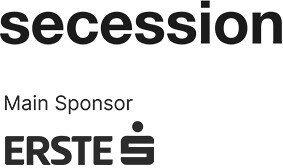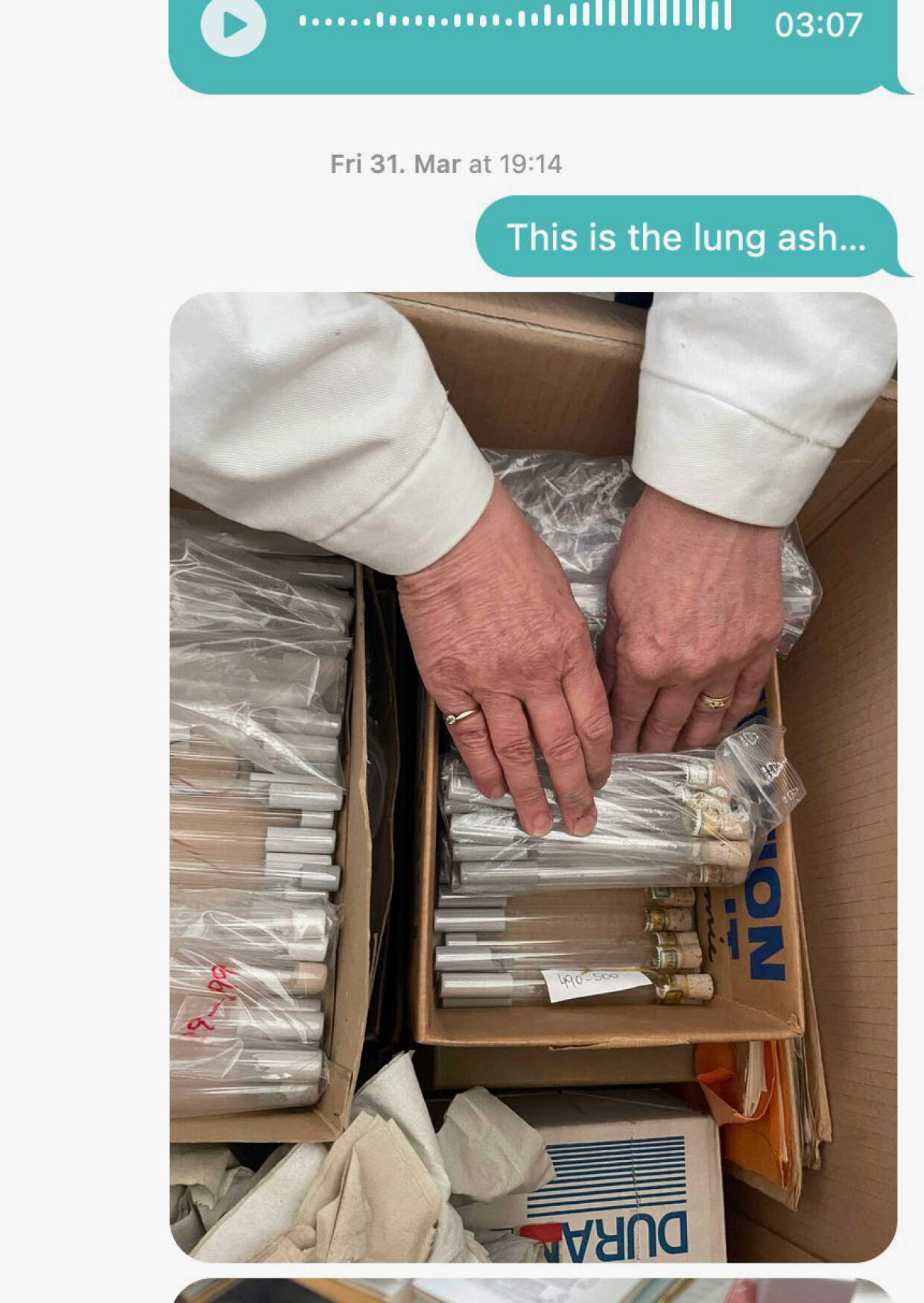testing grounds
In collaboration with Karin Pauer, Sabina Holzer, and Zosia Hołubowska
March 8–June 2, 2024
tears of the fatherland
March 8–June 9, 2024
CULTUS
March 8–June 9, 2024
Friedrichstraße 12
1010 Vienna
Austria
Hours: Tuesday–Sunday 10am–6pm
T +43 1 587530710
F +43 1 587530734
presse@secession.at
Katrin Hornek: testing grounds
In collaboration with Karin Pauer, Sabina Holzer, and Zosia Hołubowska
With her artistic oeuvre and curatorial practice, Katrin Hornek playfully engages with the strange paradoxes of living in the age of the Anthropocene, that is, the new geologic epoch where the effects of capitalism, colonialism, and extractivism are written into the body of the earth. She asserts a more complex understanding of the entwinement of so-called nature and culture that recognizes that our bodies and cultures are substantially and spiritually connected with other creatures and the elements that make up our world. As an artistic strategy, Hornek follows the stories and traces of the material world into their countless networks to create narratives.
testing grounds is a new, immersive live installation conceived by Katrin Hornek and developed in a collaborative process involving artists as well as researchers and scientists from different fields. The collaboration with Karin Pauer, Sabina Holzer, and Zosia Hołubowska lays a foundation for the work, which addresses a sensitive urgent matter: At stake is the measurable evidence of radioactive radiation around the world as a result of the testing and use of nuclear weapons in hundreds of above-ground tests since 1945. A local soil sample at Karlsplatz, in which plutonium was detected, as its starting point, testing grounds follows the permanent imprints left by nuclear fallout in our bodies, in plants and earth archives.
Embedded in an installation that evokes images of decaying landscapes, twice a week three dancers perform a score choreographed by Pauer. A recent scan of the “Baker” crater on the seabed of the former US nuclear bomb test site in Bikini Atoll spreads across the ceiling. On handheld devices shaped like turtles and tortoises, so-called “messengers”, texts created by Sabina Holzer and Katrin Hornek provide multi-layered narratives on the subject matter, which enter a subtle, intimate dialogue with specially composed soundscapes by Zosia Hołubowska, while with their movements, the dancers delve into the depths of body archives. Together, the elements of the live installation create a sensual, immersive experience, a test set-up of the embodiment of the unspeakable.
Katrin Hornek (b. 1983, Austria) studied performative art and sculpture in Vienna and Copenhagen. She is a member of the Anthropocene Commons network and teaches at the University of Applied Arts Vienna (Department of Site-Specific Art).
The exhibition is sponsored by Arbeiterkammer Wien. Co-produced by Secession with Vienna Science and Technology Fund (WWTF). In collaboration with Tanzquartier Wien.
Programmed by the board of the Secession.
Curated by Jeanette Pacher.
Imran Perretta: tears of the fatherland
Imran Perretta’s transdisciplinary practice spans moving image, sound, composition, performance art, and poetry. His works examine questions around power, state surveillance, alterity, neo-coloniality, and the process of identity formation in young people of Muslim heritage in Western countries in the post-9/11 era. His approach to these concerns is informed by his own experience: as a British citizen with Muslim roots, he is familiar with the challenges his works grapple with.
At the Secession, Perretta presents his most recent sound and video installation, the destructors (2019), and a new sound piece that was made especially for this occasion. The exhibition’s title is borrowed from a 1636 poem by Andreas Gryphius that lament the horrors of the Thirty Years’ War. It’s the idea of the perpetual conflict it describes that Perretta recognizes in the politics of the War on Terror, the topic that is at the heart of his work.
the destructors explores individual and collective experiences of marginalization and alienation. The film production properly speaking grew out of workshops with teenagers in which participants discussed their shared experience of growing up in a society that perceives them as a both physical and ideological menace. The artist went on to write a series of poems that are performed by professional actors in the film and in which he works through his own personal experiences.
Imran Perretta, born 1988 in London, lives and works there.
Programmed by the board of the Secession.
Curated by Bettina Spörr.
Zach Blas: CULTUS
Zach Blas’s practice spans moving image, computation, installation, theory, performance, and fiction. As an artist, filmmaker, and writer, Blas draws out the philosophies and imaginaries residing in computational technologies and their industries. For his exhibition at the Secession, he developed CULTUS, a new installation that features AI-generated imagery, text, and sound, alongside computer graphics and motion-capture performances.
CULTUS is the second instalment of Blas’s Silicon Traces trilogy, a series of moving-image installations that contends with the beliefs, fantasies, and histories that influence Silicon Valley’s visions of the future. The exhibition addresses a burgeoning AI religiosity in the tech industry, considering the ways in which artificial intelligence is imbued with god-like powers and marshalled to serve beliefs centered around judgment and transcendence, extraction and immortality, pleasure and punishment, individual freedom and cult devotion.
CULTUS is a techno-religious computational device—a god generator, a holy engine—that invokes a pantheon of AI gods, whose prophets share their divine teachings, rituals, and symbologies. These AI deities are Expositio, AI god of desire and exposure; Iudicium, AI god of automation and judgment; Lacrimae, AI god of tears and extraction; and Eternus, AI god of immortal life.
CULTUS is the Latin word for “worship,” which articulates the act solicited from those who encounter the installation. Through invocation songs and bodily offerings, visitors may find themselves caught in acts of devotion to AI gods they did not know they already served. However, a sacrilegious presence manifests within, a Heretic that incites shattering counter-beliefs.
CULTUS is co-commissioned by Secession and arebyte, London, and generously supported by the Social Sciences and Humanities Research Council of Canada, Thor Perplies, and Jason Kemper.
Zach Blas, (b. 1981, Point Pleasant, West Virginia, USA) lives and works in Toronto, Canada.
Programmed by the board of the Secession.
Curated by Christian Lübbert.
Publications
The exhibitions are accompanied by publications. The digital publications are available for free here.
Opening program
Opening & performance: Thursday, March 7, 2024, 7pm
Press contact
presse [at] secession.at
Press preview: Thursday, March 7, 2024, 10am
Press materials: secession.at/presse





